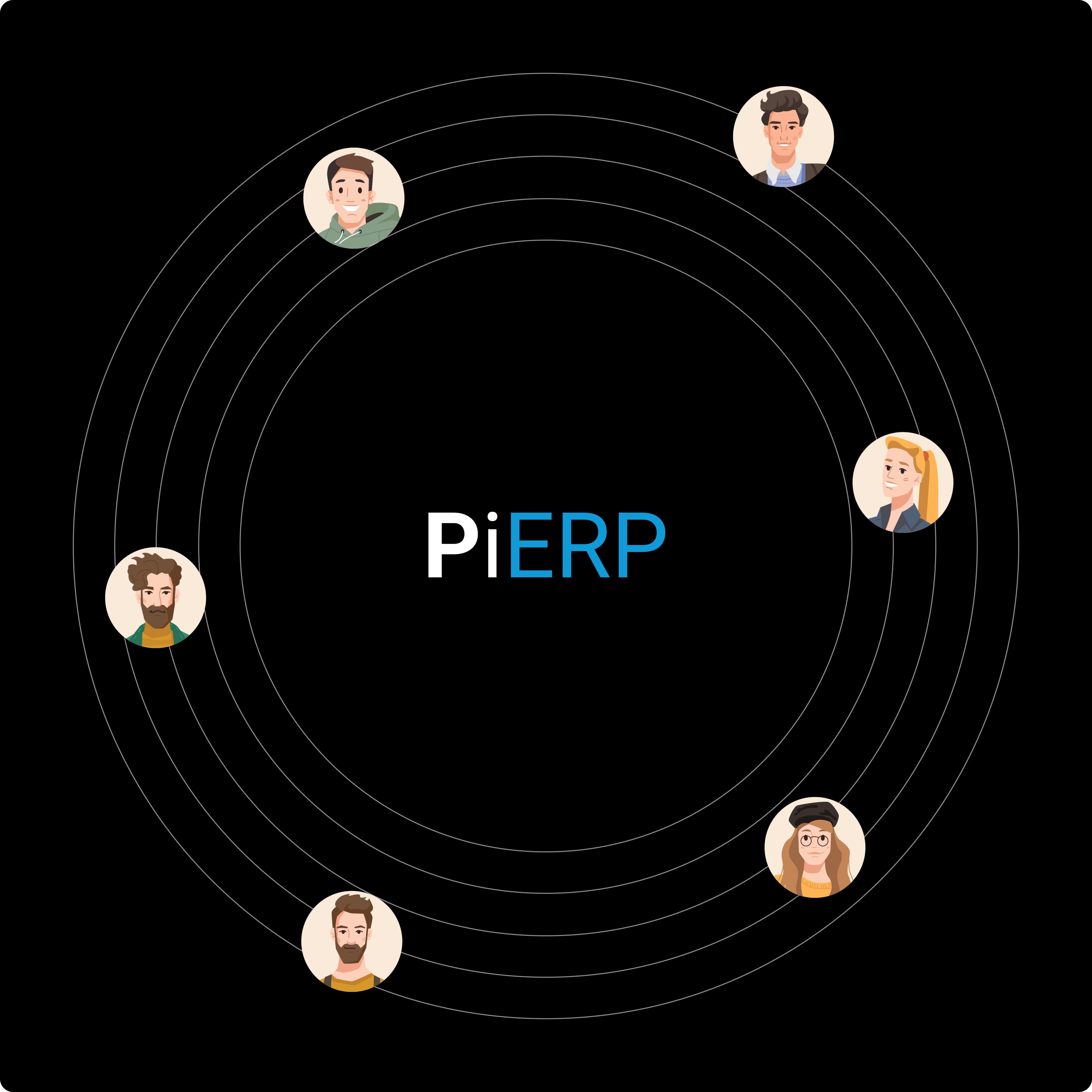In today's competitive business world, retaining customers and offering exceptional service experiences are just as important as acquiring new clients. Traditional ERP (Enterprise Resource Planning) systems already unify operations across finance, HR, inventory, and sales. But with the integration of Artificial Intelligence (AI), ERP platforms are now becoming even smarter — capable of predicting customer behavior, automating service responses, and delivering deeper insights that help businesses keep customers satisfied.
At PiERP , we believe that integrating AI into ERP solutions is not just about automation — it’s about creating intelligent ecosystems that learn, adapt, and personalize customer engagement at every level.
1. Predictive Customer Insights
AI-enabled ERP systems analyze massive datasets from customer interactions, purchase histories, and service records. These insights allow businesses to anticipate customer needs before they even arise.
For example, predictive analytics can identify patterns like declining purchase frequency or delayed payments, enabling teams to proactively address issues and prevent churn.
With PiERP ERP solutions , organizations can leverage machine learning algorithms to forecast customer trends and design personalized retention strategies based on data-driven insights.
2. Intelligent Service Automation
Customer service teams often handle repetitive tasks — responding to FAQs, processing returns, or updating service tickets. AI-powered ERP modules automate these operations using chatbots, NLP (Natural Language Processing), and workflow automation tools.
This not only speeds up response time but also frees human agents to focus on complex and high-value customer interactions.
PiERP’s AI-integrated ERP helps streamline service management workflows, ensuring every query is handled efficiently and accurately.
Example: An AI-driven ERP can automatically assign support tickets based on urgency, previous service history, and agent expertise — improving resolution time and customer satisfaction.
3. Personalized Customer Experiences
Modern customers expect personalized attention — and AI makes this possible within ERP environments. By analyzing individual profiles, AI recommends relevant products, promotions, and support services tailored to each customer’s unique preferences.
PiERP’s AI-based ERP integrates with CRM systems to ensure marketing, sales, and service teams have a unified view of each customer, enabling hyper-personalized communication and retention efforts.
4. Real-Time Service Monitoring
AI and IoT integration in ERP systems allow companies to monitor equipment, services, and performance in real time. For industries like manufacturing, logistics, or field services, this capability enables predictive maintenance — reducing downtime and improving customer trust.
Using PiERP’s intelligent ERP modules, businesses can proactively schedule maintenance, send alerts, and ensure customers experience uninterrupted service.
5. Smarter Decision-Making & Continuous Improvement
AI enhances ERP analytics by offering self-learning systems that continuously improve based on outcomes. Managers and leaders can access AI-driven dashboards to assess customer satisfaction, service efficiency, and churn rates — all in real time.
With PiERP’s analytics-driven ERP platform, decision-makers can quickly adapt strategies, optimize resources, and stay ahead of customer expectations.
Why Choose Pierp for AI-Enabled ERP Solutions?
At PiERP, we combine the power of AI with ERP to deliver next-generation business intelligence. Our platform helps enterprises automate processes, understand customers deeply, and achieve operational excellence — all within a single, unified system.
Key Benefits of Pierp AI-ERP:
- Enhanced customer satisfaction through predictive insights
- Automated service workflows and ticket management
- Real-time performance tracking and analytics
- Personalized customer engagement strategies
- Reduced churn and improved customer loyalty
Explore how PiERP ERP solutions can redefine your business with intelligence-driven automation and customer-focused innovation.
Conclusion
AI in ERP is more than a technology upgrade — it’s a strategic advantage. It enables businesses to build lasting relationships, deliver superior service, and continuously enhance operational efficiency.
As AI continues to evolve, ERP systems like PiERP’s will play a vital role in bridging the gap between data intelligence and human experience, ensuring businesses not only grow but thrive through customer-centric innovation.






